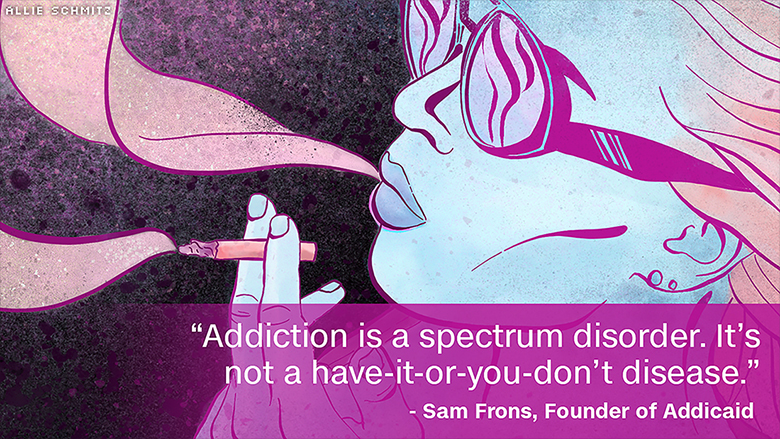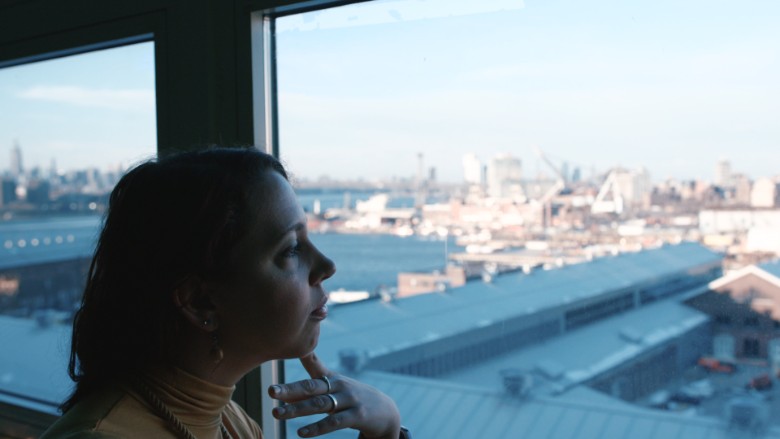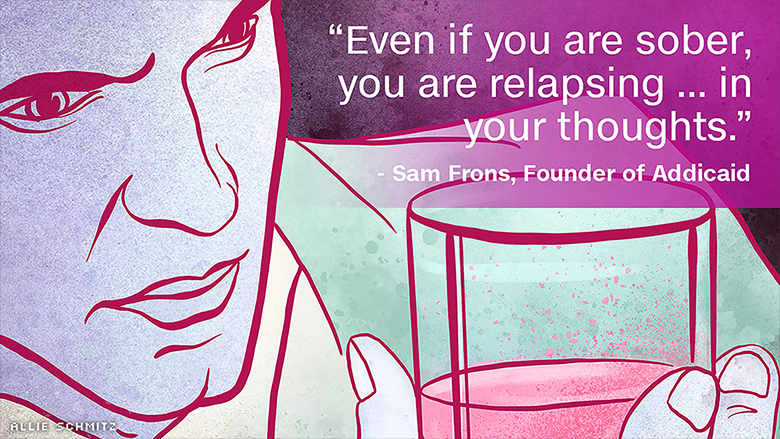
The word "addict" has a lot of stigma attached to it.
"We were sold years ago on the idea that addicts were people that lived under a bridge," said Jamison Monroe Jr., founder of teen addiction recovery center Newport Academy.
But in the last few years, opioid abuse has hit epidemic proportions, and white people have had the largest increase in heroin addiction.
Monroe, who is a recovering addict, said it's helping to change the stereotypes around what an addict looks like. "We're coming to know that addiction does not discriminate based on demographics or income brackets or zip code."
In fact, there are 22.7 million Americans who need treatment for drug and alcohol related issues, according to the National Institute on Drug Abuse.

Some tech entrepreneurs, many of whom are former addicts, are building businesses focused on addiction prevention and treatment. They believe that algorithms and apps can support addicts and help them relearn healthy behaviors.
Current treatment options largely fall into two buckets: in-patient facilities and support groups like Alcoholics Anonymous. But after leaving a treatment center, patients get very little followup; and AA, which popularized the 12 step program, is faith-based which doesn't jibe with everyone. A recent survey found that 89% of AA members are white.
"[It] makes no sense that we're using the same [Alcoholics Anonymous] model from 1935," said entrepreneur Sam Frons.
Frons, who is a recovering addict, sees the need for a more data-driven approach to addiction recovery. Her startup Addicaid has developed a three-pronged strategy targeting individuals, clinics and insurance providers.

Addicaid's free app helps those with a gamut of addictions, ranging from alcohol, heroin and opiates to gambling, codependency and porn.
Users can report information about their personality and situations that make them more likely to use drugs, like hanging out with certain friends or being alone.
Through a combination of machine learning, adaptive artificial intelligence and clinical research, Addicaid personalizes programs for users. Based on what users are logging and the words they're using, it can predict when people might be at risk of falling into addictive behaviors and intervene.
Related: Sex tech in the age of Trump
"We're pretty comprehensive and innovative in our wheelhouse of common triggers and promising interventions, but the thing about behavioral health is that we simply don't have a clear picture of every pattern that dictates consequential decisions. This is where the machine learning comes in," said Frons.
People can also set specific goals for themselves, seek social support through its online community, and find a nationwide meeting directory. Addicaid is not meant to serve as a replacement for existing treatments, added Frons, who says the app is already being used by tens of thousands of users.
Frons, who is currently fundraising for Addicaid, plans to roll out a premium paid version of the app later this year. It will put individuals into support groups based on shared tendencies, as opposed to just the substances they're addicted to. These tendencies -- like "hypercritical" or "entitled" -- are drawn from research into the beliefs that fuel certain behaviors. The idea is that in order to address addiction, you also have to acknowledge the underlying factors.
A recent pilot program in New York had a 100% retention rate among its 38 participants during its first month and 75% retention three months later.
"You can show people that they have similar compulsions, and this is something that is treatable and changeable," she added.

Frons said her addictive tendencies originally manifested themselves in an eating disorder when she was 13. It progressed to alcohol, pot, cocaine, codependency, and more. The overarching addiction, she said, was a proclivity to make bad decisions despite the negative consequences.
"Helping people realize that this is a spectrum disorder and not black and white is a really powerful tactic to combat the general stigma," she said.
Frons views addiction as a learning disorder instead of a disease, something scientists have been studying for decades but that hasn't really entered the mainstream narrative. She sees relapse as being nearly inevitable, which is why Addicaid is an ongoing program.
In addition to its app, Addicaid also has a platform to help clinics automate and streamline aftercare. Frons said down the line, the data Addicaid gathers can also be useful for insurance companies, which can leverage it to make cost-effective decisions and help with early intervention.
Related: 1,100 strangers showed up at his house for sex. He blames Grindr
Another addiction-oriented startup, WorkIt, is focused more on prevention. Its 12-week course is designed to help people kick bad habits before they become full-fledged addictions. It costs $168 per month (it also partners with some insurance companies) and gives individuals access to a certified counselor and a personalized treatment program to curtail the addictive behavior.
Like Addicaid, Workit Health is developing an algorithm to understand a person's state and intervene as needed.
Cofounders Robin McIntosh and Lisa McLaughlin first met in 2009 at Alcoholics Anonymous. But it wasn't until six years later that they decide to start Workit. The push came after one of McLaughlin's close friends overdosed on prescription opiates. "We were tired of watching our friends die," McIntosh said. "Technology enables human beings to treat [addicts] better."
For all addiction startups, there's an uphill battle to prove their worth. Effectiveness and the ability to scale and monetize are significant challenges and are all critical to their success.
Related: She wants her rape reporting software to be universal
WorkIt said it's currently undergoing two scientific research studies to understand how its service is impacting patients with substance abuse problems.
John Torous, cofounder of the digital psychiatry program at Beth Israel Deaconess Medical Center, called innovation in the addiction recovery space "important exploratory work."
"Addictions are a tricky field," said Torous. "I don't think we have a digital panacea -- yet. I can't tell [when it's going to be, but] I think we will see some important breakthroughs in addiction and mental health that come from using technology."

